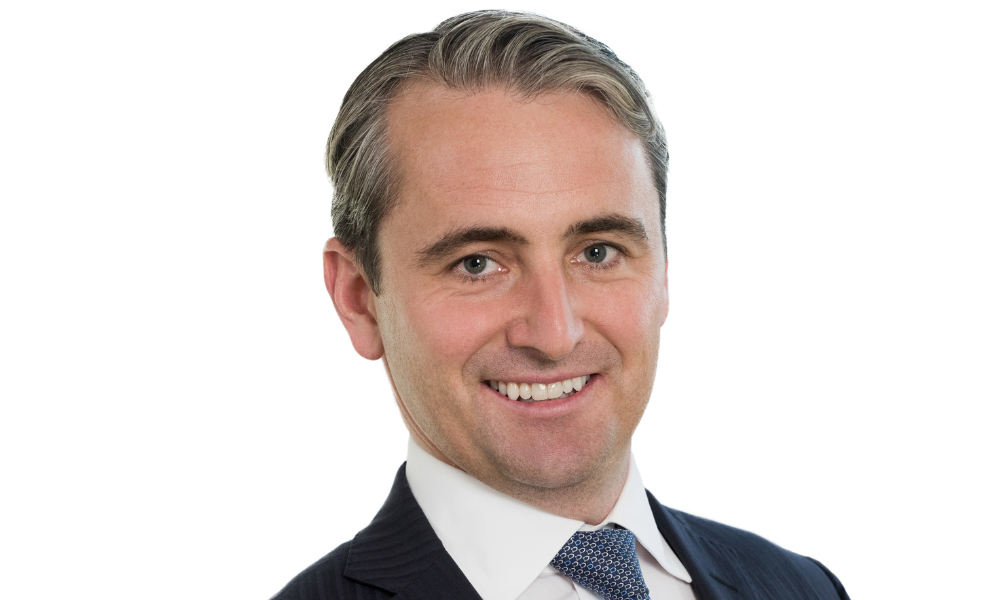CBA's Matt Comyn is right to worry about banker brain drain

Matt Comyn (pictured below), chief executive of Australia’s largest financial institution Commonwealth Bank, has never shied away from expressing his thoughts on mortgage broker remuneration.
As revealed during the 2018 Royal Commission, Comyn once harboured a desire to end broker commissions and shift to a fee-for-service model, while hoping for regulatory change over trail commissions.
That sensational – albeit not without international precedent – idea was ultimately scrapped for a very simple reason. If CommBank went through with it, while competitors such as NAB and Westpac didn’t, CommBank stood to lose billions in broker-originated loans.
“We didn't think it would be replicated, absent regulatory intervention. Therefore, we didn't think we would improve customer outcomes because, effectively, no one else would change their model. We would just originate fewer loans through that channel,” Comyn said at the time.
Nonetheless, Comyn fired a few more barbs at broker commissions just last year.
“There is no balanced scorecard, there is no fixed pay – (brokers) are entirely remunerated based on the number of loans they sell,” he told the House of Representatives standing committee on economics.

The suggestion was obvious – banker bonus caps were unfair when stacked against the potentially unlimited commissions of the mortgage brokers.
Such statements expose the ‘us and them’ mentality that is still prevalent in some corners of the banking sector, but Comyn is not without a valid point.
There is a genuine brain drain occurring in the big banks. Talented bankers are establishing brokerages in the name of seeking riches and professional autonomy.
Danny Tran (pictured below) is one such ex-banker. Having quit his job as a senior business banker at NAB, Tran established Sydney-based brokerage Finesse Financial Services in early 2023.
“The reason why I left was I was generating a significant amount of revenue for the bank while serving my clients at the highest level,” Tran told MPA.
“It always felt like they found a way to restrict my bonus anyway when I put my heart and soul into my job. As I got better, the more I copped it. When people leave or are away, you're just left dealing with other people's work, usually under time pressures.”
The clients he worked for were also not always ideal, added Tran. “But if you're on the broker side, if there's a client that doesn't respect my time or just isn't the right fit, I can tell them to find someone else that is more suitable.”

Such are the benefits of working for yourself. As Tran said: “I can earn as much as I want depending on how much I want to work. I'm pretty much sure I'm working more than I did before but my earnings are proportional to my work.
“But the biggest part for me is just the freedom to be my own boss, but also to have the freedom to also be present and around for my young family. That's the most important part.”
Tran makes it sounds like an alluring prospect, but the banker brain drain has some negative side effects for the mortgage finance industry as a whole.
The new skills shortage?
With less bank-side talent, finding a good banker to work with, one that will be around for a long time and possesses the right attributes to best serve borrowers, is becoming harder.
“This is a dying breed because a lot of them are doing what we're doing and becoming brokers, or they're just climbing the corporate ladder and trying new roles within their organisations or industries,” said Tran.
Maintaining close relationships with business development managers (BDMs) at all of Finesse’s lending partners is crucial to getting the best outcome for clients, added Tran.
But these BDMs are also under the cosh.
Tran said: We've thankfully got a handful of good BDMs that help out with scenarios and enquiries, but I can also see them suffering in the same way where the better they are, the more work will get piled onto them. So it's a very universal sort of problem where there's not enough support out there to help high performers.”
As someone who has made a success out of traversing the banker-to-broker pipeline, other bankers often approach Tran for advice on making the switch.
His first piece of wisdom is always a warning: “It's not as straightforward as you think it is.”
The first six to 12 months will be a tough slog and income isn’t going to start rolling in right away, cautioned Tran. There are also non-compete clauses with previous employers that have to be navigated.
“So in terms of finances, you've got to save a little bit on the side to endure that first year of ‘drought’,” said Tran.
“Once you build up your accreditations, your knowledge and everything else that's involved in running your business well, you slowly start to build up the pipeline in year two and then you're off to the races.
"But you're not going to be driving around in a Lambo drinking champagne all day, for sure.”



